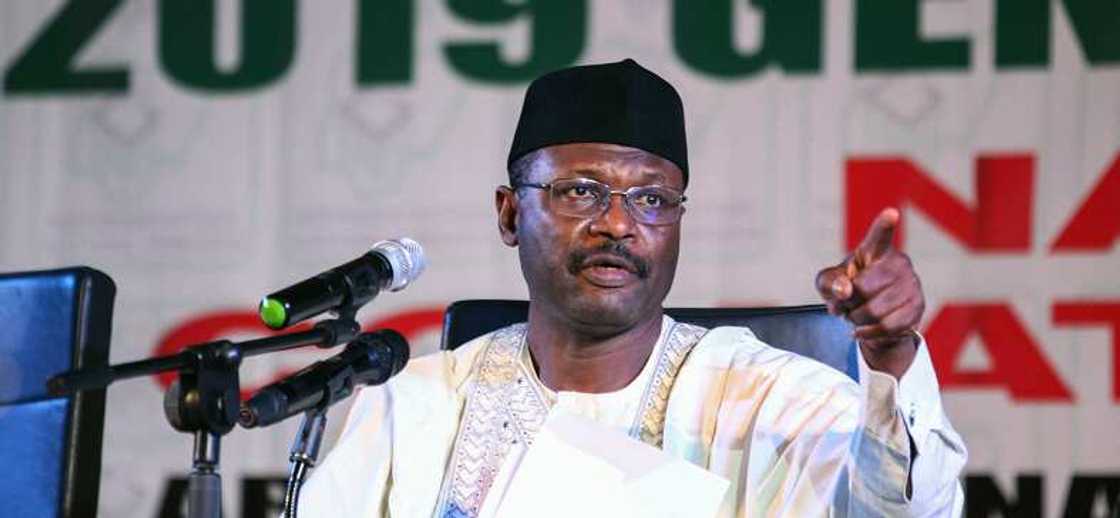2023 Elections: PVC verification, Voter Accreditation and 3 Other Key Things Voters Should Know About BVAS
- Ahead of the 2023 polls, electorates have been urged to equip themselves with the correct information before heading to the polling units
- INEC has, over the past few months, continued its sensitisation and awareness schemes in conjunction with civil society groups to keep voters up to date
- One of the various information a voter need to know is how the Bimodal Voter Accreditation System (BVAS) functions
PAY ATTENTION: Click “See First” under the “Following” tab to see Legit.ng News on your Facebook News Feed!
With less than three weeks to the 2023 general elections, electorates are itching to hit the polls to exercise their civic right by choosing their most preferred candidates.
However, the 2023 polls will come with an array of changes, intrigue, enthusiasm and a lot more that are expected to make this year's elections unique.

Source: Twitter
One of the latest introductions to the Nigerian electoral system is a new technology, the Bimodal Voter Accreditation System (BVAS).

Read also
March 18 election: Concerns over INEC's credibility heightens as PWDs sends strong message to Yakubu
The BVAS was introduced by INEC in 2021 to improve the credibility of Nigeria's electoral system and prevent electoral fraud, thereby replacing smart card readers.
PAY ATTENTION: Follow us on Instagram - get the most important news directly in your favourite app!
Five critical things about BVAS and how it works
1. The BVAS reads the PVCs and authenticates voters' biometrics (fingerprints and facial recognition) before voting.
2. To read the PVC, it can scan the barcode or QR code on the PVC or the voter's register. The presiding officer can also input the last six digits of a voter's Voter Identification Number (VIN) or last name to verify the genuineness of the PVC and accredit votes.
3. Beyond accreditation, the BVAS is used to upload polling unit results to the INEC Result Viewing Portal (IREV) in real-time during an election.
4. According to a Yiaga Africa election advisory document "My Election Buddy", the BVAS would capture the results after the election at a polling unit and immediately transmit them to the portal that is accessible to the public.
5. The BVAS doesn't require internet connectivity to function. As long as the battery is charged and the device is appropriately configured, it can function optimally. Internet connectivity is only required to transmit results.
2023 Elections: Nigerians Get Electoral Education on How To Make Informed Political Decisions
Meanwhile, efforts are ongoing to ensure that the 2023 general election in Nigeria has the best outcomes for the people.
Specifically, the advocacy group has commenced training and public enlightenment to make this possible.
According to them, public enlightenment will go a long way to help in the success of the general elections.
2023 Elections: "What We’ll Do if Hoodlums Steal BVAS", INEC Speaks
Meanwhile, INEC has a way to outsmart political thugs who are planning to steal BVAS machines during the general elections.
The electoral body disclosed that if the machines are carted away by thieves, they will be deactivated from the backend.
The agency added that the polling unit officer will also report it if the machines are stolen and taken elsewhere to be manipulated.
Source: Legit.ng

